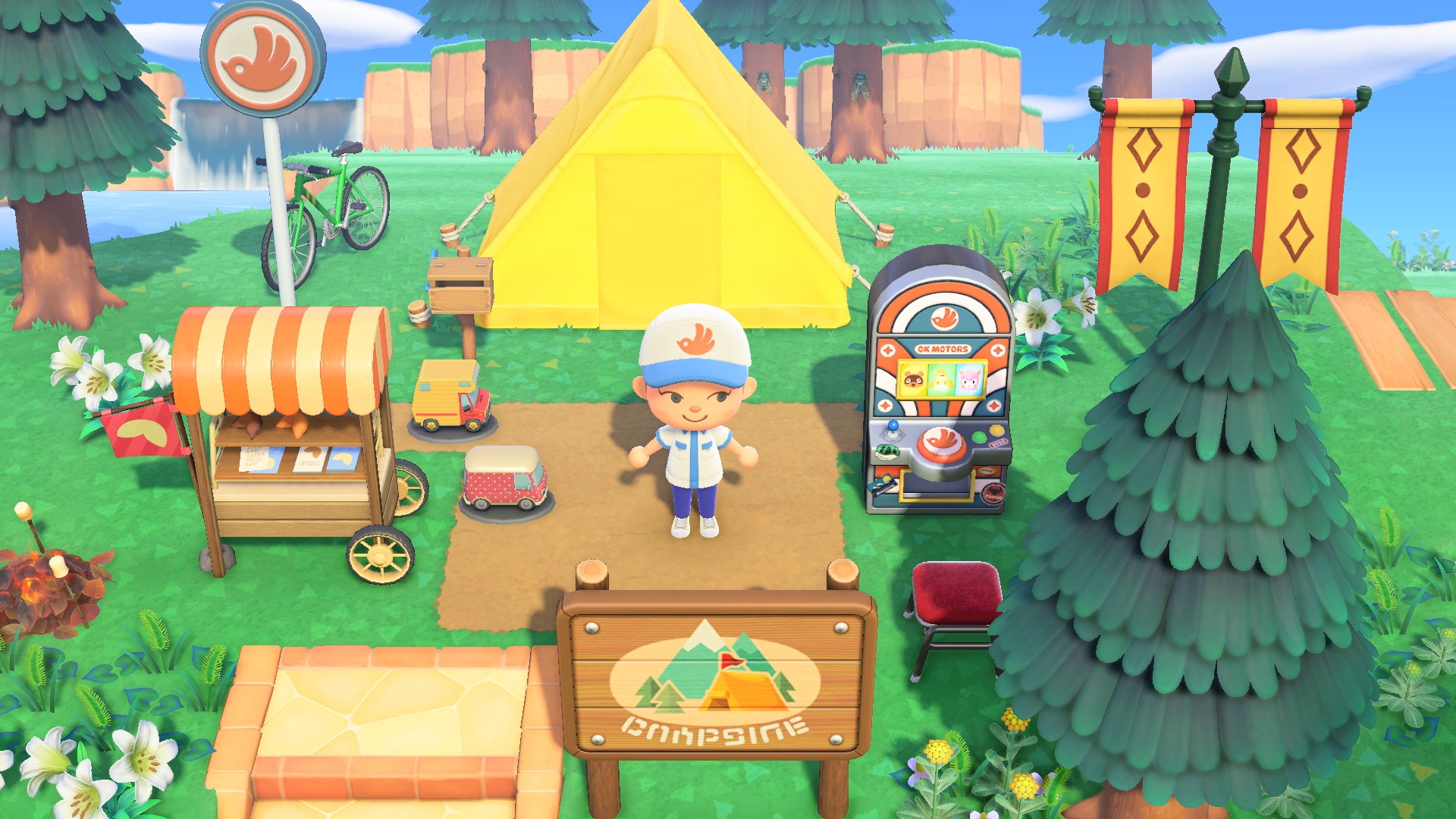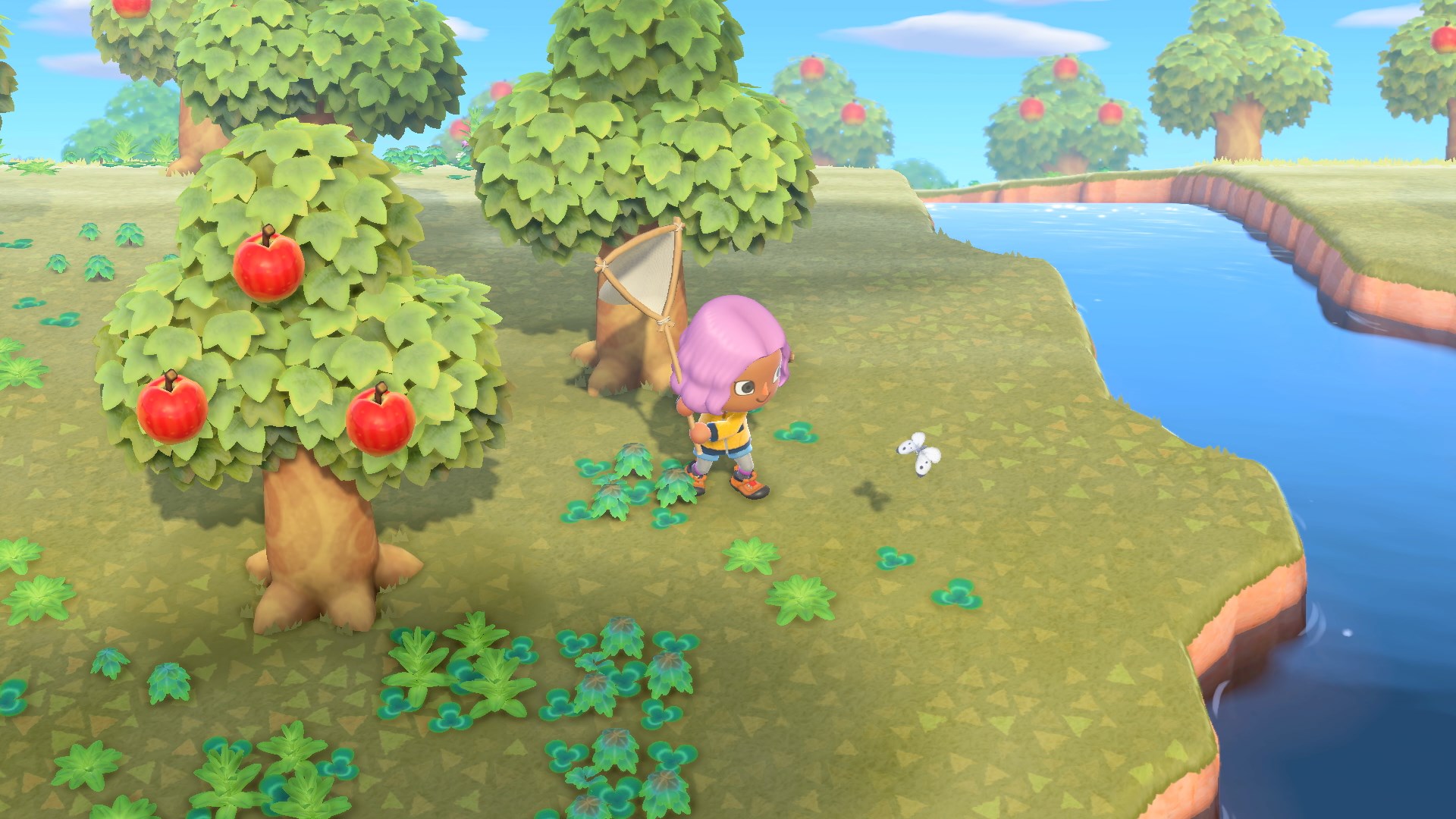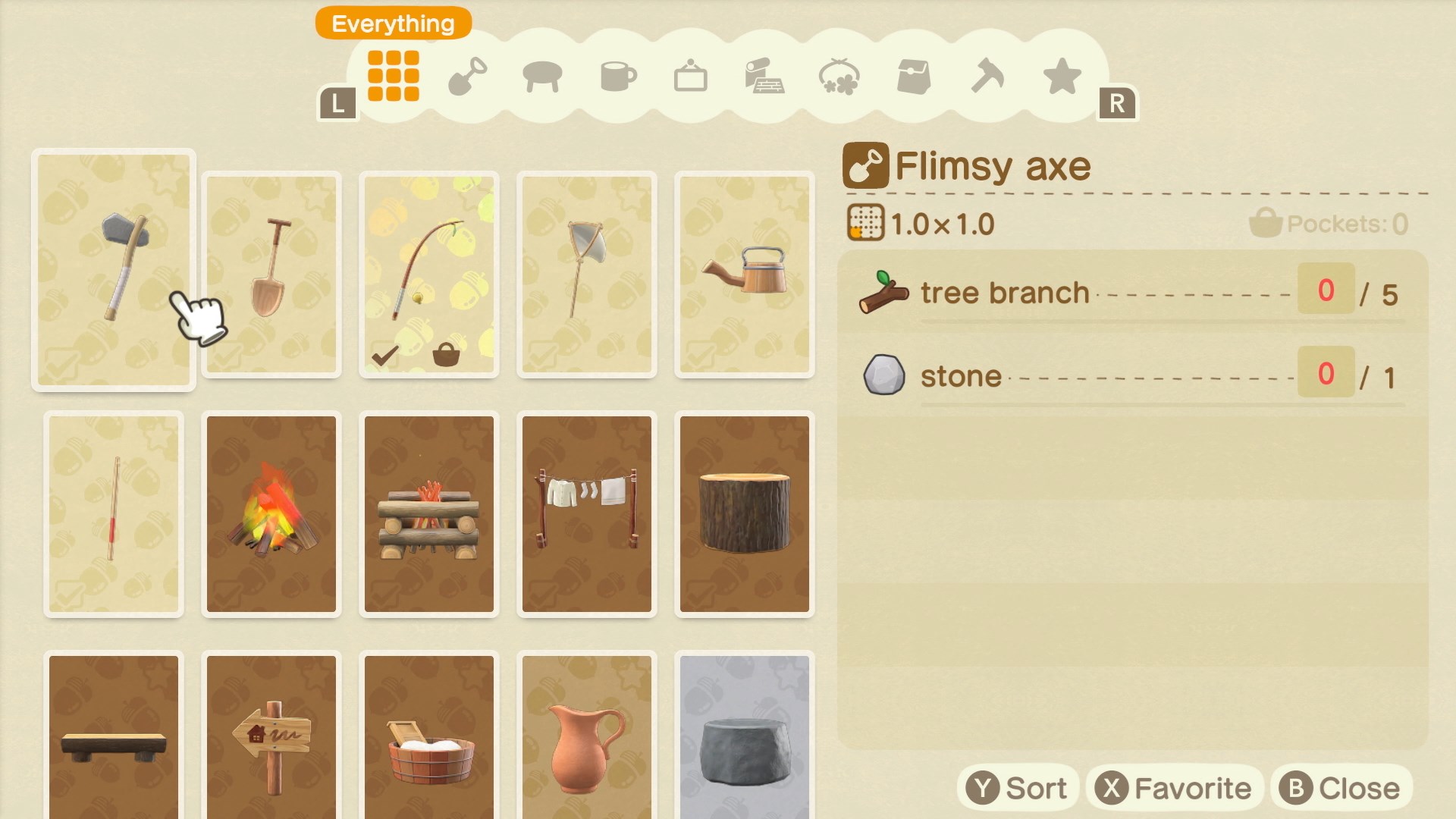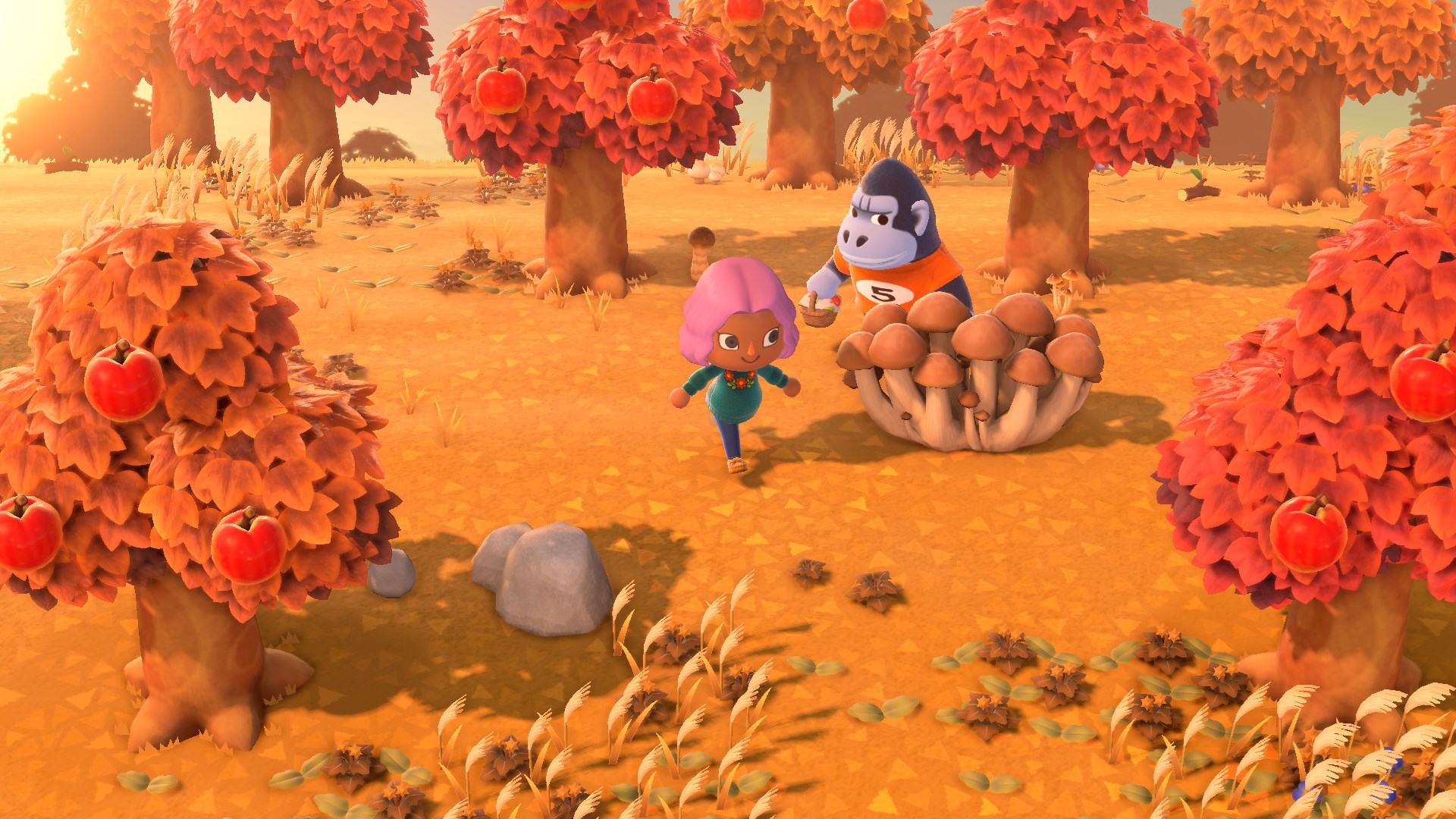Animal Crossing: New Horizons is the relaxing Nintendo Switch game we need right now
Animal Crossing: New Horizons lets you choose your own goals

Animal Crossing: New Horizons, which arrives on March 20, isn't like most other first-party games on Nintendo Switch.
Whether it's Link fighting off moblins, a Pokémon trainer competing for glory or Inklings splattering each other with paint, Nintendo's other big releases are all about conflict. Animal Crossing, on the other hand, is about building furniture, collecting trinkets, reshaping landscapes and making friends. It's almost obnoxiously cute — but not nearly as cloying as it could be, thanks to its depth of gameplay.
- Play the best Nintendo Switch games
- Need a Switch? Check out the best Nintendo Switch deals
- Mystery Star Wars: Project Maverick game just leaked for PS4
I went hands-on with Animal Crossing: New Horizons at PAX East 2020, and believe it or not, it was the first time I'd ever touched the series. Sims have never really been my thing; I crave objectives, narratives and endings in my game. But once I got into Animal Crossing's groove, I understood why people adore this franchise so much. It's an extremely laid-back, easygoing experience, but not in a way that erases all challenge. The game encourages you to make progress, but to do so at your own pace.
Animal Crossing: New Horizons gameplay

Nintendo split the demo into segments. The first one took place shortly after the game begins, with a villager who didn't have much to her name, save some clothing and a rudimentary shelter. Animal Crossing: New Horizons isn't a survival game, so you won't need to worry about hunger, exposure or other problems that you might associate with the remote island setting. But there's also not much to do until you start building up your town, so I got to work.
Early on, there's not much to see on the island. My shelter was a tent, which contained a very simple bed, a chair and not much else. I could collect sticks and weeds, but I didn't have tools complex enough for anything else. A river surrounded the "town" (there were hardly enough buildings to merit the word), and I didn't have any way to cross it.
From here, we jumped ahead into the second part of the demo, where things were much more exciting. Now, my villager had a house, complete with a living room, a kitchen, a separate bedroom and tasteful, color-coordinated furniture all around. But the world outside was even more striking.
Now, instead of a desolate patch of desert, there was a bustling town outside. As the villager built the place up, she attracted a variety of different villagers, some of whom set up houses or shops of their own. (All of the other villagers are adorable humanoid animals, hence the game's title.)
Now that I had some tools at my disposal, my first job was to find a way to cross the river and see what was on the other side. To that end, I equipped an ax and went to work on the nearest tree. Once I'd gathered enough wood, I found a crafting bench and built myself a vaulting pole. With the pole in hand, I could ford small river crossings. It reminded me of nothing so much as the very first Legend of Zelda game, where half the fun of the game was acquiring items to overcome environmental obstacles.
Animal Crossing: New Horizons collectibles

Having successfully crossed the river and gathered some fruit, I made my way back into town to see what had changed since my early-game explorations. The first thing I noticed was a clothing shop, where I decided to change up my style a bit. The shop had a variety of shirts, hats, pants, skirts, jumpsuits and glasses, each one available in three or four different colors. A fitting room allowed me to try on any of these clothes before purchasing them.
Since I was playing on a Nintendo rep's actual save file, I decided to keep her bank account intact, but the sheer amount of stuff available was impressive — and this was just one shop's stock, on a single day. Inventories will change over time, and different stores will sell different goods. It's probably not possible to collect every single item in the game, although it seems like a worthwhile long-term goal.
Crafting, exploring, shopping — these were all fine, but it wasn't until I reached my next destination that I got excited about what Animal Crossing: New Horizons has to offer. I set foot inside the town's museum, and immediately wanted to learn more.
The museum is a natural history repository for all of the bugs, fish and fossils you collect during the game. (You gather bugs with a net, fish with a fishing pole and fossils with a shovel. Some are harder to acquire than others, but collecting them seems like a pretty logical process.) But it's not simply a long row of trophies; the museum is an intricately mapped building, with pre-built aquariums for your fish and mounts for your fossils.

My fossil collection was full of half-complete dinosaur skeletons, and I could already see how I, personally, might go about playing Animal Crossing: New Horizons. Once I set up my house and town, I would buy myself a khaki suit and a Panama hat, then start digging for dinosaur bones. I'd collect and sell items to fund my expeditions, and range farther and farther afield to find rare specimens.
And that, I think, is the big appeal of Animal Crossing. The game isn't totally directionless; it's just that you have to choose your own directions and goals. But the game doesn't put any pressure on you. There don't seem to be any time constraints, and even if you come across a villager you don't like, you can ask him or her to leave. Eventually, you'll have built up your town, your way, and have found a fulfilling way to spend your time.
While I don't think Animal Crossing: New Horizons is for me, getting some time to play the game helped me understand just why the series has become such a massive success. In a chaotic world where our hard work doesn't always pay off, it's extremely satisfying to build up a whole community, and to find your niche in it.
Sign up to get the BEST of Tom's Guide direct to your inbox.
Get instant access to breaking news, the hottest reviews, great deals and helpful tips.
Marshall Honorof is a senior editor for Tom's Guide, overseeing the site's coverage of gaming hardware and software. He comes from a science writing background, having studied paleomammalogy, biological anthropology, and the history of science and technology. After hours, you can find him practicing taekwondo or doing deep dives on classic sci-fi.

